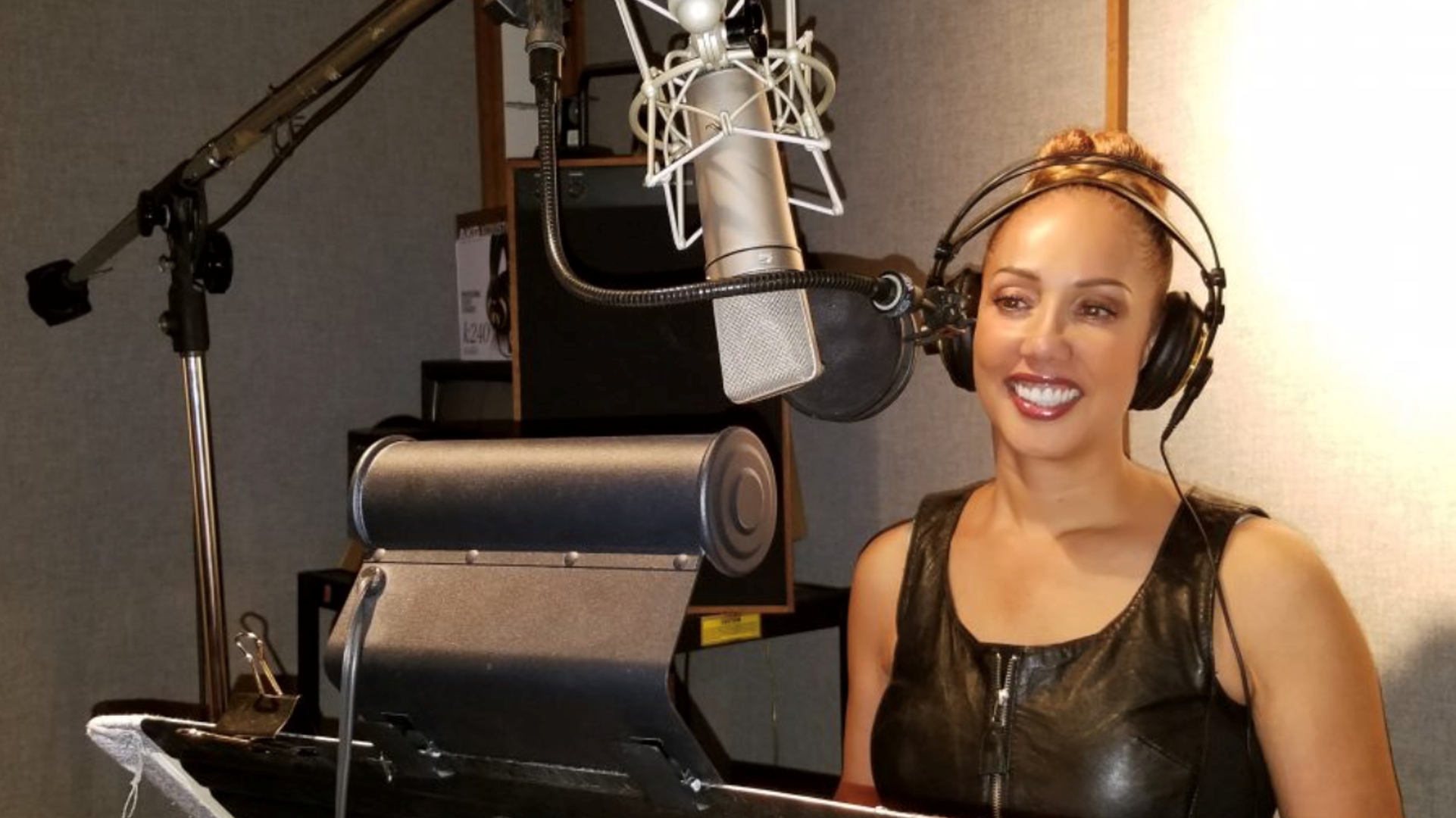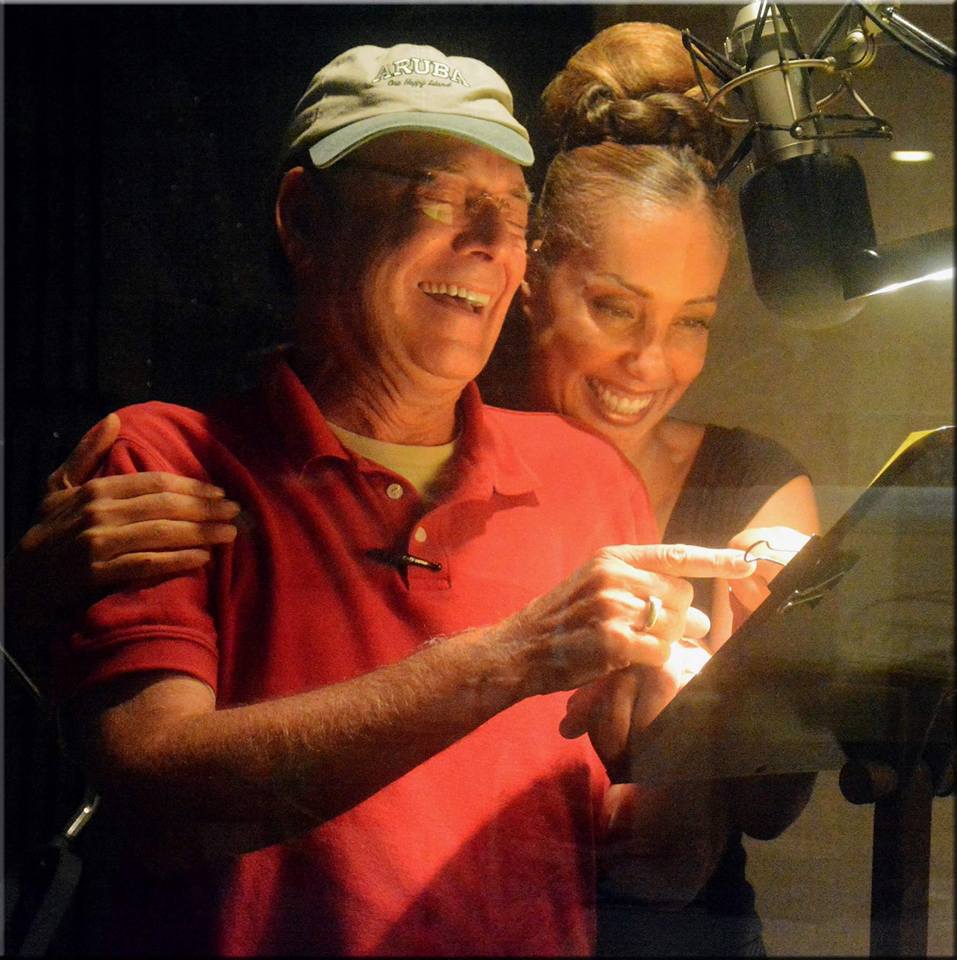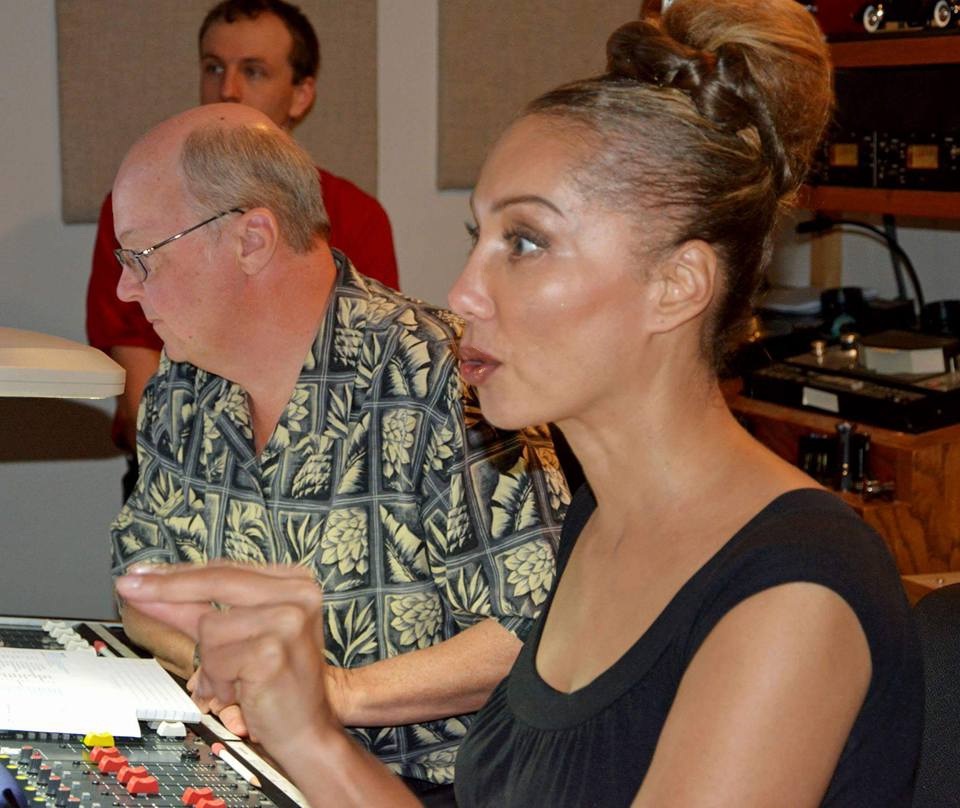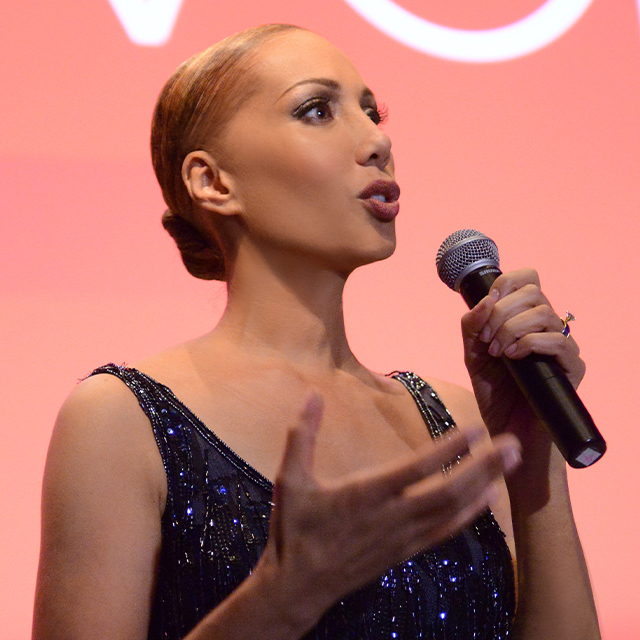–
Notes From the Field: Have Women
Voice Actors Tamed the Last Taboo?
By Joan Baker, April 13, 2025
–

–
As a woman in voice acting, I’ve been fortunate to experience some extraordinary career moments. But when I look back, it’s not the big-name bookings or the occasional national campaign paycheck that stand out. Aside from a few deeply meaningful humanitarian projects that touched my heart, most of the work becomes a blur, a collage of brand names and scripts.
–
What I do remember vividly are the people. The incredible directors, producers, writers, students, coaches, and fellow voice actors I’ve had the privilege to collaborate with are what truly matter. That and the high of being lost in the creative moment and hitting the bull’s-eye with a performance. Those relationships and creative interactions have stayed with me. I haven’t hung up my earphones, but now I focus more on my work as vice president of the Society of Voice Arts and Sciences, the expansion of the voiceover department I created as adjunct professor at the University of Hartford, and, of course, my private voiceover students. In all three instances, I get to help prepare emerging talents, bring innovation to what the voiceover community is, to be a special part of its extraordinary evolution, and to bear witness.
–

And yet, even with all the progress we’ve made, I’m still mindful of how long it took for the industry to begin leveling the playing field for women. Today, in 2025, women have made undeniable strides. Not just in landing the work across all genres, but in reshaping what power and authority sound like. We’ve risen into leadership roles, become trusted brand voices, and claimed our space behind the mic, in front of the camera, and at the head of the table.
–
I’ve always trained hard to have what it takes: interpretive skill, vocal range, solid acting chops, a tireless work ethic, and the ability to connect with people. I’ve even been hired to deliver the iconic “Voice of God” performances that were once reserved strictly for men with deep, booming voices. Some producers still cling to that old mold. But many more now recognize that the so-called “Voice of God” is really about authenticity, connection, and emotional presence. None of those qualities come with a gender. They come with talent, insight, and a truth-telling spirit.
–
Of course, progress doesn’t mean perfection. We’re still up against centuries-old ideas embedded in culture, including the patriarchal image of “God” as a male figure, which continues to influence how authority is perceived and which voices are trusted. Never mind that most of us were raised by mothers whose voices could stop us in our tracks. Or that women have long been the emotional and financial anchors of their families and communities. That deep-rooted bias is still in the room.
–
It shows up in pay gaps and casting decisions. It shows up when women are told to sound “less emotional” or “more authoritative,” while men are applauded for delivering the same intensity and conviction. It shows up when female-led projects are labeled as niche, while male-led ones are considered mainstream.
–
When I first started my VO career, I wasn’t shy about meeting the people who could hire me. But it was the promo genre that I most wanted to crack. My agent (quietly) handed over her contact list, and I made it my mission to meet every name on it. I called producers directly, shook hands as I dropped off demos, and always followed up. But the responses I got were sobering.
“Oh, we don’t use women’s voices.”
“Sorry, Joan, we only use our signature male voice.”
“I can’t even remember the last time we hired a woman.”
And then there was the TV executive who told me, after pitching my voice to his network president (a woman) insisted their brand voice had to be male. “I’m very sexist when it comes to that,” she told him.
–

But like so many women voice actors, I never gave up. I kept showing up and pushing through the resistance. Eventually, I broke through. In an industry dominated by male voice choices, I became the female voice used on major TV networks like Showtime, ABC News, HBO, ESPN, and Court TV. I also spread my skill across documentary narration, commercials, animation, audiobooks, and all sorts of one-offs.
–
All the while, I would hear from producers, especially the ad agency folks, that research and focus groups show that male voices are preferred, even by women. But let’s be honest. Those results were shaped by decades of cultural bias, not objective truth. And today, more brands have forgotten that old standard than remember it. A more revealing question would be: “Have you ever rejected a product because a woman’s voice delivered the message?” Probably not. Many brands now seek diversity and authenticity, and female voices are increasingly embraced for their warmth, relatability, and credibility. And it’s no longer just in wellness, education, finance, and storytelling, but also in politics, sports, live announcing – everywhere!
–
And now we face a sweeping new challenge. Artificial intelligence is transforming the voiceover industry in ways that are no longer hypothetical. The change is here, and it’s accelerating. While there are still deeply human attributes that AI has yet to faithfully recreate in the actual process of performance, such as lived experience, cultural memory, and emotional intuition, it is closing in quickly. The replication of tone and cadence is no longer impressive; it’s expected. The question is no longer whether AI will play a role, but how we will respond.
–
Here is the good news. We are not powerless. In fact, we are uniquely positioned to push back and carve out our space, not by resisting change, but by deepening our understanding of what it means to be human and learning how to use AI as a creative ally instead of a threat. Women in voiceover are rising to this moment with clarity and courage. We are not just adapting. We are learning, mastering, and leading. We are studying the tools, sharpening our instincts, and using technology to serve our artistry and our truth. This is not the end of the human voice. It is a new beginning. Our willingness to evolve with purpose may be the most powerful voice of all.
–
The phrase “Voice of God,” like AI, does not represent a human entity, but it doesn’t need to disappear. What it does need is a reboot. Let it mean the voice that commands attention because it speaks from the soul, with truth, heart, purpose, and human beingness. It’s the cry that brings the room to stillness. The story that makes you lean in. The truth that moves something inside you. That is the real voice of power.
–
And that power belongs to anyone brave enough to claim it. ♦♦♦
–
 Joan Baker is the co-founder and VP of the Society Of Voice Arts And Sciences™ (SOVAS™), an award-winning voice actor, producer, and author of Secrets of Voiceover Success. She pioneered the Voice Acting Department as an adjunct professor at the Hartt School, University of Hartford, and serves as a judge for the Daytime Emmy Awards. Joan, along with her partner, Rudy Gaskins, is the co-creator behind That’s Voiceover!™ Career Expo and the Voice Arts® Awards, celebrated as “The Oscars® of Voice Acting.” Her work champions transformation and excellence in the voice arts industry.
Joan Baker is the co-founder and VP of the Society Of Voice Arts And Sciences™ (SOVAS™), an award-winning voice actor, producer, and author of Secrets of Voiceover Success. She pioneered the Voice Acting Department as an adjunct professor at the Hartt School, University of Hartford, and serves as a judge for the Daytime Emmy Awards. Joan, along with her partner, Rudy Gaskins, is the co-creator behind That’s Voiceover!™ Career Expo and the Voice Arts® Awards, celebrated as “The Oscars® of Voice Acting.” Her work champions transformation and excellence in the voice arts industry.
–
–












